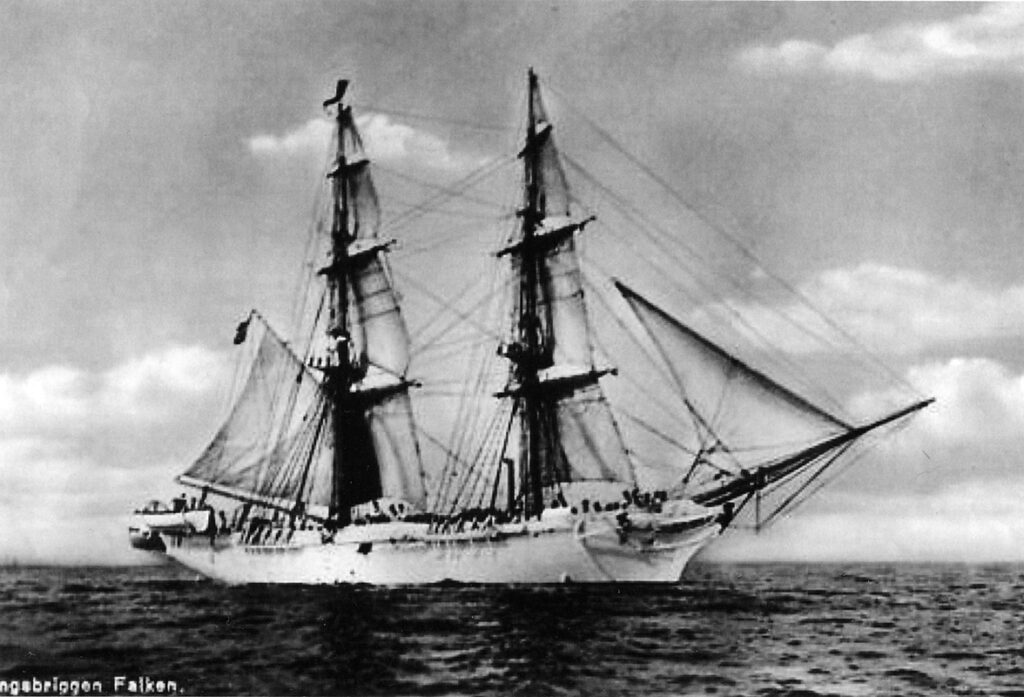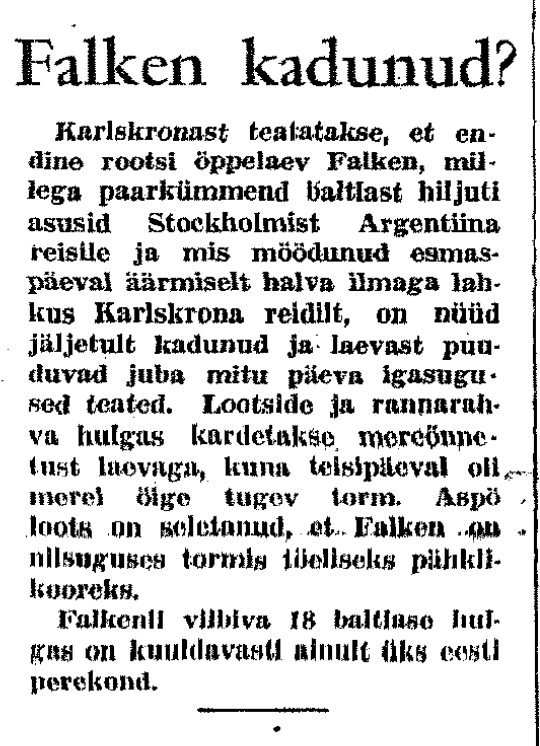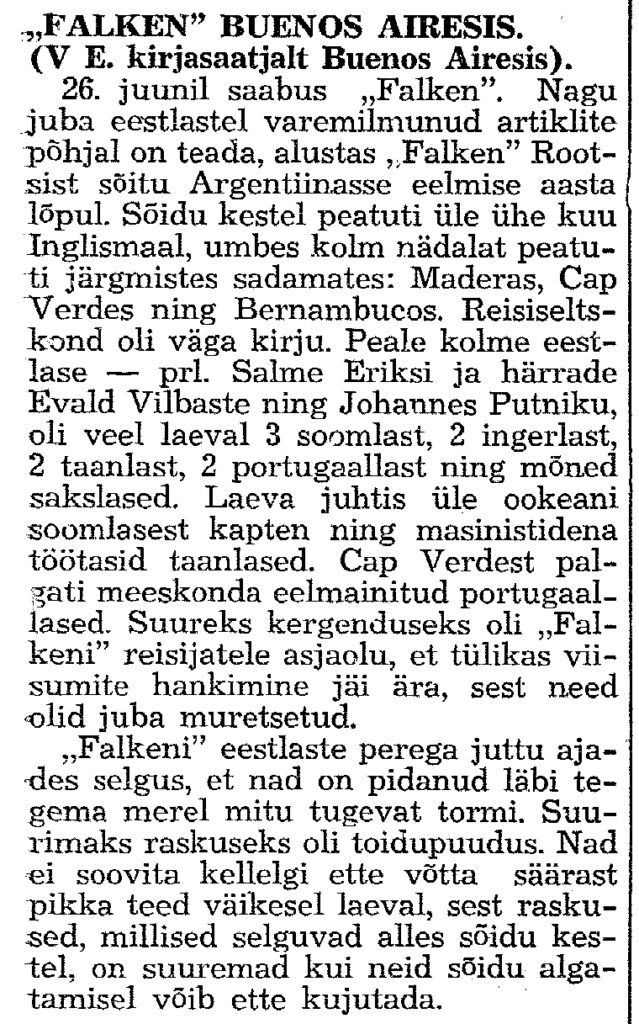Boats

The Falken.
Falken
The voyage of the Falken to Argentina was organized by Dr. Ludwig Lienhard, a German with close contacts to the German occupation government in Estonia during World War II. Lienhard had originally bought the former Swedish Navy training ship for 160,000 kronor with Swedish government funds allocated to evacuate Estonian Swedes in Estonia at the end of the war.
The Falken was a beautiful sailing ship built in 1877. It was 78 feet long (23.7 meters) and 20.5 feet wide (6.23 meters) with a two-masted brig and rapier sails. It had served the Swedish monarchy for 66 years until it was decommissioned in 1943.

Is the Falken lost? Stockholms-Tidningen Eestlastele, January 8, 1949
The Falken left Stockholm under the command of Swedish Captain Nils Halfdan Lundquist on December 30, 1947, with 18 Baltic refugees on board. Since the ship was well known, the Swedish press followed its movements closely. Newspapers reported that the Falken encountered fierce winter storms and had to seek shelter and make repairs near Karlskrona and Simrishamn harbors in Sweden. It then continued to Helsingborg, where a reporter for Välis-Eesti interviewed Mr. Lienhard and two Estonians on board, engineer Erich Hans Jaago and Ethel Jaago. Evald Vilbaste, Salme Eriks, and Johannes Putnik joined the ship on January 28 in Göteborg. Ms. Eriks paid 700 kronor for passage and also worked as a galley maid in the kitchen.
The ship stopped at Källö-Knippla, an island west of Göteborg, before leaving Sweden on Feb. 4, 1948. Eight Germans, five Estonians, five Finns, two Danes, and a Swede were on board. The stormy crossing to England took two weeks instead of the typical four to five days, and when the yacht reached Southampton, some of the passengers and crew, including the captain, disembarked.
After staying a month, the Falken stopped in at Swanage and then under a new Finnish captain, Olevi Pemanheimo, it set course for Madeira. After 12 days, the ship reached the island and everyone except the Estonians, whom local residents regarded as communists, was allowed to go ashore. Two more stops were made in Praia, Cape Verde, and Recife, Brazil, before the Falken reached Buenos Aires.

The Falken arrives in Argentina, Eesti Teataja, July 7, 1948
En route to Argentina, the Falken encountered a fierce cyclone that last three days off the coast of Brazil. Finally, on June 26, 1948, the Falken arrived in Argentina, following a difficult six-month journey where food was always in short supply. According to Dr. Lienhard, nearly all of the trip was completed under sail power alone. After the Falken arrived, Välis-Eesti reported that the refugees warned others against taking such a long journey on such a small ship. The challenges, which only became apparent after departure, were far greater than originally imagined, they said.
All the refugees had visas, and were allowed to enter Argentina.
Known crew and passengers:
- Captain Nils Halfdan Lundquist (left ship in England)
- Captain Olevi Pemanheimo (joined ship in England)
- Ludwig Lienhard, wife, and four children, aged 2 to 8 years
- Karl Holleck-Wheitmann
- Erich Hans Jaago and Ethel Jaago
- Evald Vilbaste
- Salme Eriks
- Johannes Putnik
Photograph reproduced with permission from the Estonian Maritime Museum.
